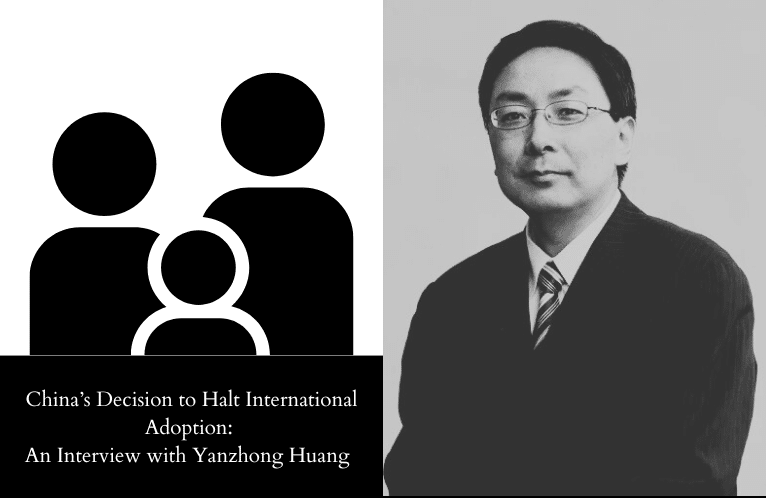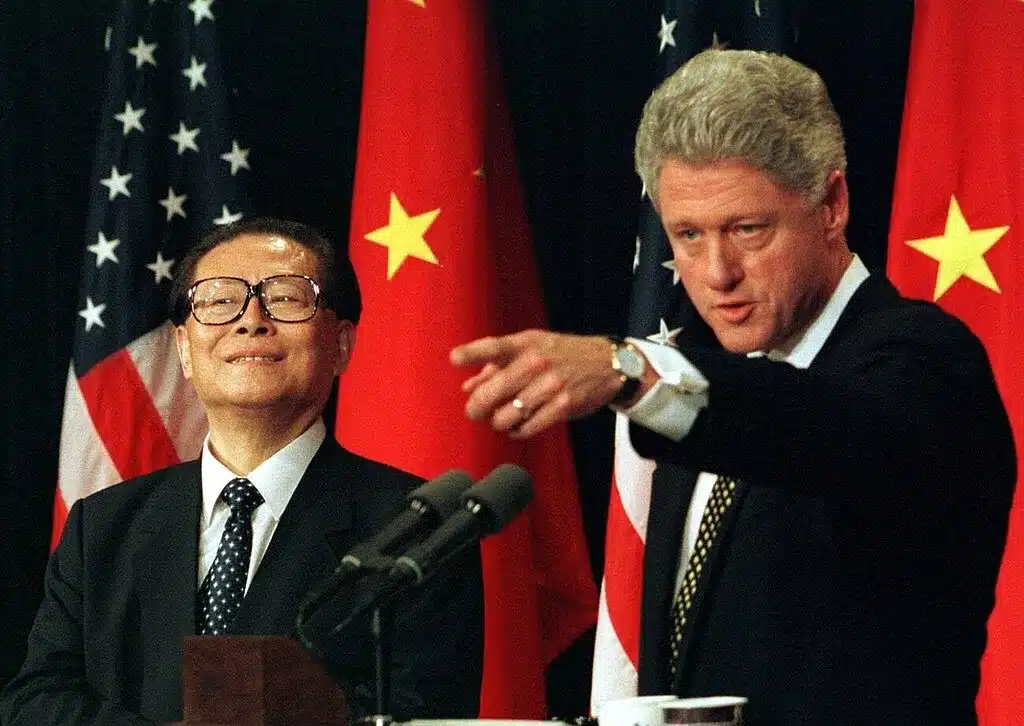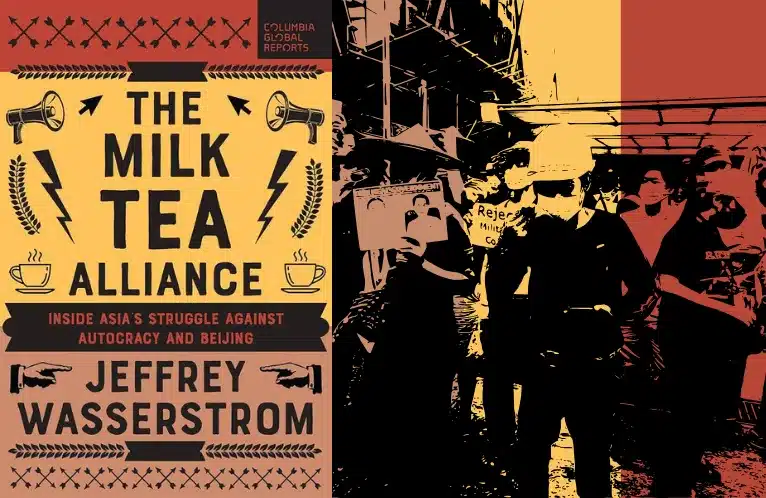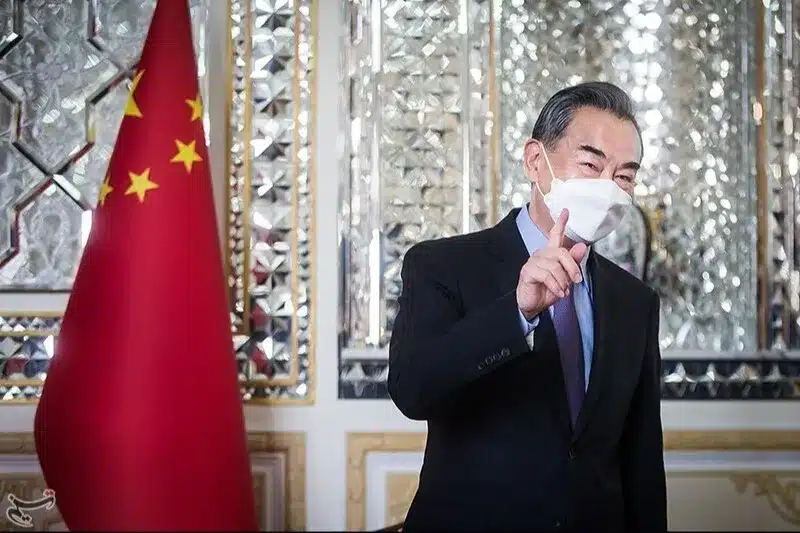China’s Decision to Halt International Adoption: An Interview with Yanzhong Huang
- Interviews
 Miranda Wilson
Miranda Wilson- 10/24/2024
- 0

On September 6, China announced that it would no longer send children overseas for adoption. China’s decision follows Denmark and Norway, who made similar announcements concerning halting their international adoption programs earlier this year. U.S. families have adopted 82,674 children from China, the most from any foreign country. The decision will have an impact on families in the middle of the adoption process, which was already facing serious delays due to COVID-19.
Dr. Yanzhong Huang, a senior fellow for global health at the Council on Foreign Relations, published an article titled “A Closed Door for Orphans? Unpacking China’s International Adoption Policy.” The Monitor reached out to Dr. Huang for an interview to further discuss China’s decision and its potential implications on U.S.-China relations. Dr. Huang is also a professor and director of global health studies at Seton Hall University’s School of Diplomacy and International Relations, where he developed the first academic concentration among U.S. professional international affairs schools that explicitly addresses the security and foreign policy aspects of health issues. He is the founding editor of Global Health Governance: The Scholarly Journal for the New Health Security Paradigm.
Miranda Wilson: To begin, in your article, you point out that one of the motivating reasons for China’s termination of its international adoption program could be the principle in the Hague Adoption Convention that says domestic adoption is preferable to international adoption. But as you also note, China has been a part of this convention since 2005, so why now?
Yanzhong Huang: Well, if you look at the timing of China’s decision to terminate the International Adoption Program, despite being part of The Hague Convention since 2005, it seems to be influenced by factors beyond adherence to the convention’s principles. As I pointed out, I think China has a good record in terms of complying with the convention’s principles on domestic adoption: in 2005, the peak of international adoption from China, it was still no more than one-quarter of the total number of adoption cases. The principle of domestic adoption preference is not a strong justification, especially because since 2005 we’ve seen a significant decline in the number of international adoption cases. Even before COVID, the number had dropped to a level that was only a very small percentage of the total adoption cases.
People like to cite the case of Russia. In 2013, Russia decided to prohibit American families from adopting Russian-born children. They call it the Dima Yakovlev Law, named after a 21-month-old Russian boy who died in the United States after his adoptive father left him in a parked car for nine hours. However, this negative publicity did not exist in China or the United States. We have all heard the success stories, stories featuring the love and altruism of the adopting families. But I think the adoption ban in Russia is still relevant in the sense that if you look at the rationale of the Russian decision, it’s driven by politics, not care or concern for the Russian-born kids in America. It is widely accepted that the Russian ban was more like a direct retaliatory measure against the U.S. act that imposed sanctions and restrictions on Russian officials implicated in human rights violations. Basically, they were using the ban as a bargaining chip to extract concessions from the United States and rescind the sanctions against Russian officials.
Of course, we still don’t have any inside information about exactly what happened. It is conceivable that some top decision-makers might be thinking, “This is not good. How can we just allow our kids to be sent to America to grow up and turn against China?” I think the decision is more likely related to the escalating U.S.-China relations and the shift toward a more security-centric policy structure in China. The logic behind the decision to restrict international adoption could be the same logic behind the decision to prioritize Chinese-made software and computer products within China and the reluctance to share biological samples or genetic materials with the outside world.
The key issue is the lack of mutual trust. When you have trust, you don’t need to worry about politicization or securitization of issues like international adoption. I think the lack of mutual trust, which increased during the Trump presidency, is encouraged by the looking-glass effect: perceived over-securitization in one country prompts a similar response from its rivals. When China saw the United States moving to secure its semiconductor industry supply chains, and the biotech sector more recently, China grew increasingly anxious about its own industries. That anxiety could lead China to over-securitize policy areas such as international adoption.
In the absence of mutual trust, the contrast between the perceived inability for China to care for disabled orphans and the success stories of those children raised in American families could raise concerns in China that the issue is leveraged by U.S. so-called hostile forces to critique China’s system and boast American soft power.
Indeed, I found an article published on Guancha.cn, a popular nationalist website. This article written by a Chinese scholar justifying the government decision basically says, “The cases of adopted children achieving success are often over-interpreted by people with ulterior motives that could be used as material to praise the United States.”
MW: Your article mentions that international adoption is beneficial for Chinese children and babies born with special needs, a group that might often be overlooked. Could you share more about why international adoption is beneficial for these children?
YH: Hypothetically, if a child was not adopted, do you think that they would have a better life? They might stay in the orphanage until they are 18 if nobody wants to adopt them. And they would very likely have an uncertain future after that. I think we have to recognize that international adoptive families, particularly from the United States, have shown a greater willingness to adopt children with special needs. When the birth control policy was still in place, American families were also more likely to adopt a female child. Later, when that birth control policy was relaxed, most of the children in the state orphanages were children with special needs. And few Chinese families wanted to adopt them. That explains why most of the international adoption cases involve children with disabilities or severe illnesses.
That is one reason. The second reason is access to specialized care. Many of these children may have better access to specialized medical care and support services in countries like the United States because it offers services to children with special needs in school and society. But in China, the options remain limited.
Third, we should also talk about the quality of life. These children might have better prospects for a nurturing family environment and a more promising future through international adoption. In many families with a Christian background, adopted children are more likely to receive love from their parents and grow up with support. I am sure you have seen or heard many success stories: adopted Chinese children who become Olympic champions or go to top universities. Identity issues aside, I think international adoption is beneficial for these children. Of course, I don’t want to speak on behalf of these children.
MW: Your article quotes the following remarks from Chinese President Xi Jinping, where he expressed distaste toward those “with Chinese faces but no Chinese heart, no Chinese affection and no Chinese taste.” What are your thoughts on this sentiment? What does it say about the broader beliefs of Xi Jinping and his goals for China?
YH: Keep in mind, that this quote is in reference to Chinese education. There is the possibility that, eager to please the President, bureaucrats overreact to the president’s remarks by abandoning the entire international adoption program. This reflects a bandwagon policy structure: policy implementers “overkill” to show their loyalty to the leadership. But we don’t want to over-interpret that. That said, I don’t think it’s the most plausible explanation in accounting for this policy change.
The decision may be partly motivated by concerns about national identity — the perception of Chinese children being raised in foreign cultures that may turn them against China. Cases of this are relatively rare. Many of these children’s parents actually encourage them to learn Chinese languages and culture or send their kids to China to find their biological parents if they can.
MW: The issue of international adoption raises difficult questions about cultural and racial identity. How do you understand the responsibilities of a parent who adopts a child of a different race or national origin? Are there any surprising consequences or benefits?
YH: I think there’s certainly identity issues when you are raised in a multiracial family. When we highlight the identity challenges faced by those children, especially when they’re placed in families with cultures that differ significantly from their own, we often overlook the benefits for the well-being of those children. That is, whether they have a happier life compared with where they were born. While I recognize identity issues, I think overall it’s a good thing, even for children adopted by families with different cultural backgrounds.
MW: In terms of population size, why do you think the birth rate in China and many other countries across the world is so low right now?
YH: In 2021, the total fertility rate in China was 1.1 births per woman. That is among the lowest in the world. Now, China has lifted the One Child Policy, and the government is encouraging couples to have more kids. So far, the government’s efforts have not been very successful. Why don’t young couples want to have kids? The reason is almost always the same: the cost of raising additional children. That is becoming much more of an issue with the current economic slowdown. Many saw their salary cut and some lost jobs or are having difficulty finding a job. Certainly, that’s related to the ways in which Chinese parents raise and educate their kids. They tend to invest a lot in their children’s education.
MW: Do you have any insight into what will happen to the families that were in the process of adopting a child from China and are currently stuck in limbo?
YH: To my knowledge, so far, there are about 300 American families with pending adoption cases in China. Certainly, they’re very disappointed because they have already spent years on this process. At least four years of waiting, not to mention the process costs about $25,000 to $40,000.
The U.S. Department of State is also working to negotiate with their Chinese counterparts for a solution. If you look again at the Russian example, in 2013 in the aftermath of the ban U.S. diplomats managed to negotiate a solution that allowed about 250 children to join their prospective parents. But with China, so far we haven’t heard any progress in that regard. We’re not talking about asking the government to reverse the decision, but just allow the children who are already in the process of being adopted to leave and join their prospective families. These families are working hard, reaching out to the State Department and Congress, and even petitioning the Chinese leaders. But so far, there has not been any progress.
MW: Finally, what does this decision mean for the future of U.S.-China relations?
YH: Well, I think the decision could be seen as another sign of the deteriorating U.S.-China relations because it reflects the increasing distrust between China and the United States and the growing tendency to view various policy areas through a national security lens. It is also a potential setback for people-to-people exchange. As President Xi has highlighted, because of the deterioration of this official political relationship, people-to-people exchange has become more important. Over the years, adopting families has been a nexus for people-to-people exchange: they send their kids to China and encourage their kids to learn Chinese culture and Chinese languages. With that, this decision to end international adoption might hurt people-to-people exchanges at a time when China is emphasizing it. It also could contribute to the broader trend of decoupling between the United States and China across various sectors.
Miranda Wilson is a senior at Emory University and contributing editor for the U.S.-China Perception Monitor.
The views expressed in this article represent those of the author(s) and not those of The Carter Center.







